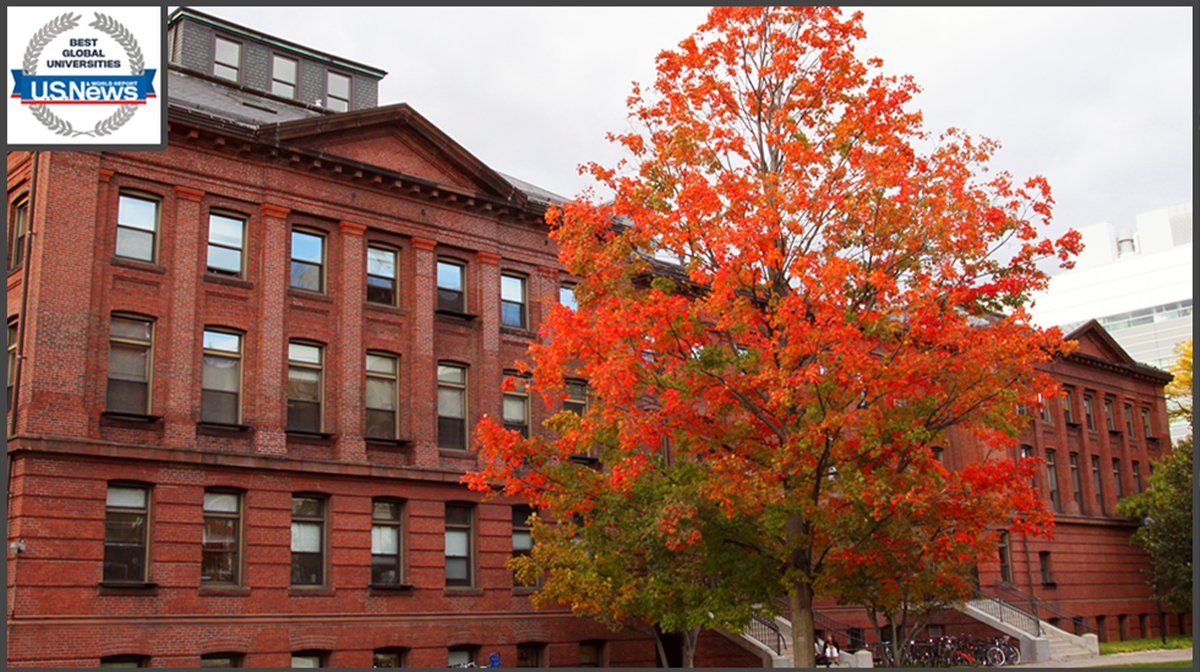Introduction to applied physics 哈佛
Harvard University stands as a beacon of academic excellence, renowned globally for its pioneering research and rigorous academic programs. Among the myriad disciplines offered, Applied Physics at Harvard represents one of the most dynamic and innovative fields. This article delves into the rich tapestry of Harvard’s Applied Physics program, exploring its curriculum, research opportunities, faculty expertise, and the career trajectories of its graduates.
Applied Physics Harvard: Where Innovation Meets Application
Harvard’s Applied Physics program bridges the gap between theoretical physics and practical engineering. It combines the deep conceptual understanding of physical principles with the ability to apply this knowledge to real-world challenges. Whether it’s developing new materials, advancing quantum computing, or exploring the frontiers of nanotechnology, the program equips students with the skills and knowledge needed to make a tangible impact.
Curriculum Overview: A Blend of Theory and Practice
The Applied Physics curriculum at Harvard has been carefully crafted to provide a solid foundation in core physical principles while allowing students to specialize in areas of interest. Courses range from classical mechanics and electromagnetism to more advanced topics such as quantum mechanics and condensed matter physics. The program emphasizes hands-on experience, with numerous laboratory courses and project-based learning opportunities.
Students also benefit from interdisciplinary courses, drawing from Harvard’s engineering, chemistry, and materials science departments. This interdisciplinary approach reflects the real-world applications of physics, where solutions often require a blend of expertise from multiple fields.
Cutting-Edge Research Opportunities
Harvard’s Applied Physics program is deeply rooted in research, offering students unparalleled opportunities to engage in groundbreaking work. The university hosts numerous research centers and laboratories, each focused on different aspects of applied physics. These include the Center for Nanoscale Systems, the Harvard Quantum Initiative, and the Materials Research Science and Engineering Center.
Students can participate in research projects from their first year, working alongside faculty members who are leaders in their fields. This early exposure to research helps students develop critical thinking skills and provides a platform for innovation. Whether it’s working on the next generation of solar cells or developing quantum communication systems, students in the Applied Physics program contribute to cutting-edge advancements.
World-Class Faculty: Mentors and Innovators
The faculty within Harvard’s Applied Physics program consists of a group of distinguished scholars and researchers. These experts bring a wealth of knowledge and experience, having made significant contributions to their respective fields. They are not just educators but mentors who guide students through their academic journey and research endeavors.
Faculty members often collaborate with industry leaders and government agencies, ensuring that their research has practical applications and societal impact. This connection to the real world enriches the learning experience for students, providing them with insights into how their work can drive innovation and solve global challenges.
Interdisciplinary Collaborations: Expanding Horizons
One of the strengths of Harvard’s Applied Physics program lies in its emphasis on interdisciplinary collaboration. Physics, by its nature, intersects with numerous other fields. Recognizing this, the program encourages students to engage with other departments, such as computer science, biology, and environmental science.
This interdisciplinary approach opens up new avenues for research and innovation. For example, collaborations between applied physicists and biologists have led to advancements in medical imaging and drug delivery systems. Similarly, partnerships with computer scientists have spurred developments in quantum computing and data science.
Facilities and Resources: Tools for Innovation
Harvard provides state-of-the-art facilities and resources to support the research and learning needs of its Applied Physics students. The university boasts advanced laboratories equipped with cutting-edge technology, including electron microscopes, cleanrooms, and quantum computing facilities.
In addition to physical resources, students have access to a wealth of digital resources, including databases, simulation software, and online journals. Harvard’s extensive library system also offers a vast collection of books, research papers, and reference materials, ensuring that students have everything they need to excel in their studies.
Career Prospects: Shaping the Future
Graduates of Harvard’s Applied Physics program find themselves in high demand across a wide range of industries. The program’s emphasis on both theoretical knowledge and practical skills makes its graduates well-suited for roles in research and development, engineering, and technology. Companies in sectors such as aerospace, electronics, energy, and healthcare actively seek out Harvard Applied Physics graduates for their expertise and innovative thinking.
Moreover, the program’s strong focus on research prepares students for careers in academia and research institutions. Many graduates go on to pursue advanced degrees, including PhDs, and contribute to the global body of knowledge in physics and related fields.
Alumni Success Stories: Leaders in Innovation
Harvard’s Applied Physics alumni have gone on to achieve remarkable success in various fields. From leading research teams at major tech companies to founding innovative startups, these individuals exemplify the impact that a Harvard education can have. Their achievements serve as an inspiration to current students and a testament to the program’s ability to cultivate leaders in science and technology.
Admissions: Joining the Harvard Community
Admission to Harvard’s Applied Physics program is highly competitive, reflecting the program’s prestige and the university’s rigorous standards. Prospective students need to demonstrate strong academic performance, particularly in mathematics and the sciences, as well as a passion for innovation and research.
The application process includes submitting transcripts, letters of recommendation, and a personal statement that outlines the applicant’s interests and goals. Successful applicants typically have a strong background in physics, mathematics, and related subjects, and they must show a commitment to pushing the boundaries of what is possible in the field of applied physics.
Student Life: A Vibrant Community
Beyond academics, Harvard offers a vibrant and supportive community for its Applied Physics students. The university hosts numerous student organizations, clubs, and societies where students can connect with peers who share similar interests. These groups often organize events, workshops, and competitions that provide additional learning opportunities and foster a sense of camaraderie.
Harvard’s campus also offers a rich cultural and social environment, with access to world-class museums, theaters, and recreational facilities. Students can balance their rigorous academic work with participation in extracurricular activities that enrich their university experience.
Global Impact: Contributing to Society
The work done within Harvard’s Applied Physics program extends beyond the university, impacting society on a global scale. Whether it’s through advancements in renewable energy, improvements in medical technology, or contributions to our understanding of the universe, the research conducted at Harvard is making a difference.
Students and faculty alike are driven by a sense of responsibility to use their knowledge and skills to address the world’s most pressing challenges. This commitment to societal impact is a core value of the Applied Physics program, and it shapes the work that is done within its labs and classrooms.
Harvard’s Commitment to Diversity and Inclusion
Harvard University recognizes the importance of diversity and inclusion in fostering innovation and academic excellence. The Applied Physics program actively seeks to create an environment where students from all backgrounds can thrive. This commitment is reflected in the program’s recruitment efforts, support services, and community-building initiatives.
Harvard provides resources such as mentoring programs, diversity workshops, and affinity groups to support underrepresented students in the field of physics. The university believes that a diverse academic community enhances the learning experience for all students and contributes to the richness of research and innovation.
Scholarships and Financial Aid: Making Harvard Accessible
Harvard is committed to ensuring that financial constraints do not stand in the way of talented students pursuing their education. The university offers a range of scholarships and financial aid options for students in the Applied Physics program. These include need-based scholarships, research fellowships, and teaching assistantships.
The financial aid office works closely with students to create a customized financial plan that meets their needs, ensuring that every admitted student has the opportunity to benefit from a Harvard education regardless of their financial background.
Innovation and Entrepreneurship: Beyond the Lab
Harvard’s Applied Physics program encourages students to think beyond the lab and consider the commercial applications of their research. The university’s innovation ecosystem, including resources like the Harvard Innovation Labs, provides support for students interested in entrepreneurship.
Students can take advantage of mentorship from experienced entrepreneurs, access to funding opportunities, and workshops on topics such as intellectual property and business development. This entrepreneurial support helps students transform their research ideas into marketable products and technologies.
Real-World Applications: Bridging the Gap Between Theory and Practice
The essence of applied physics lies in its ability to translate theoretical knowledge into practical solutions. At Harvard, this translation is achieved through a combination of rigorous academic training and real-world problem-solving. Students engage in projects that address current challenges in technology, healthcare, and the environment.
For instance, research in photonics at Harvard has led to advancements in fiber-optic communication systems, while work in nanotechnology has contributed to the development of more efficient energy storage solutions. These real-world applications demonstrate the tangible impact of the work being done within the Applied Physics program.
Networking and Industry Connections: Building a Professional Network
Harvard’s extensive network of alumni, industry partners, and academic collaborators provides Applied Physics students with valuable opportunities to build professional connections. The university regularly hosts networking events, career fairs, and seminars where students can meet leaders in the field and learn about the latest industry trends.
These connections often lead to internships, research collaborations, and job opportunities, giving Harvard students a competitive edge in the job market. The strong ties between Harvard and the industry ensure that students graduate with not only a deep understanding of physics but also the professional skills needed to succeed in their careers.
The Future of Applied applied physics 哈佛
As the field of applied physics continues to evolve, so too does Harvard’s commitment to staying at the forefront of research and education. The university constantly updates its curriculum, invests in new research facilities, and fosters collaborations that push the boundaries of what is possible.
Looking ahead, Harvard aims to expand its research into emerging areas such as quantum computing, artificial intelligence, and sustainable energy. These efforts will ensure that the Applied Physics program remains a leader in the field, training the next generation of scientists and engineers who will tackle the challenges of tomorrow.
Applied Physics at Harvard: A Global Leader in Science and Innovation
In conclusion, Harvard’s Applied Physics program offers a unique blend of rigorous academic training, cutting-edge research opportunities, and a supportive community. Students who choose to study applied physics at Harvard will find themselves at the center of innovation, working alongside some of the brightest minds in the world.
With a commitment to excellence and a focus on real-world applications, Harvard prepares its Applied Physics students to make significant contributions to science and society. Whether you are interested in advancing technology, solving complex problems, or pushing the boundaries of knowledge, Harvard’s Applied Physics program provides the tools and opportunities to achieve your goals.
FAQs
What makes Harvard’s Applied Physics program unique?
Harvard’s Applied Physics program stands out for its strong emphasis on interdisciplinary collaboration, world-class faculty, and cutting-edge research opportunities. The program allows students to work on real-world problems and develop practical solutions, making it highly relevant to today’s technological challenges.
What research opportunities are available in Harvard’s Applied Physics program?
Students in the Applied Physics program have access to a wide range of research opportunities in areas such as nanotechnology, quantum computing, and renewable energy. Harvard’s numerous research centers and laboratories provide state-of-the-art facilities for students to conduct their research.
How does the curriculum support interdisciplinary learning?
The curriculum at Harvard encourages interdisciplinary learning by offering courses and research opportunities that draw from multiple fields, including engineering, computer science, and materials science. This approach prepares students to work on complex problems that require knowledge from various disciplines.
What career paths are available for graduates of Harvard’s Applied Physics program?
Graduates of the program pursue careers in academia, research and development, engineering, technology, and more. They find employment in industries such as aerospace, electronics, energy, and healthcare, or continue their education with advanced degrees.
How does Harvard support diversity in its Applied Physics program?
Harvard actively promotes diversity and inclusion within the Applied Physics program through recruitment efforts, support services, and community-building initiatives. The university provides resources such as mentoring programs and diversity workshops to ensure that students from all backgrounds can succeed.
What financial aid options are available for Applied Physics students at Harvard?
Harvard offers a range of financial aid options, including need-based scholarships, research fellowships, and teaching assistantships. The university works with students to create a financial plan that makes a Harvard education accessible to all admitted students.











